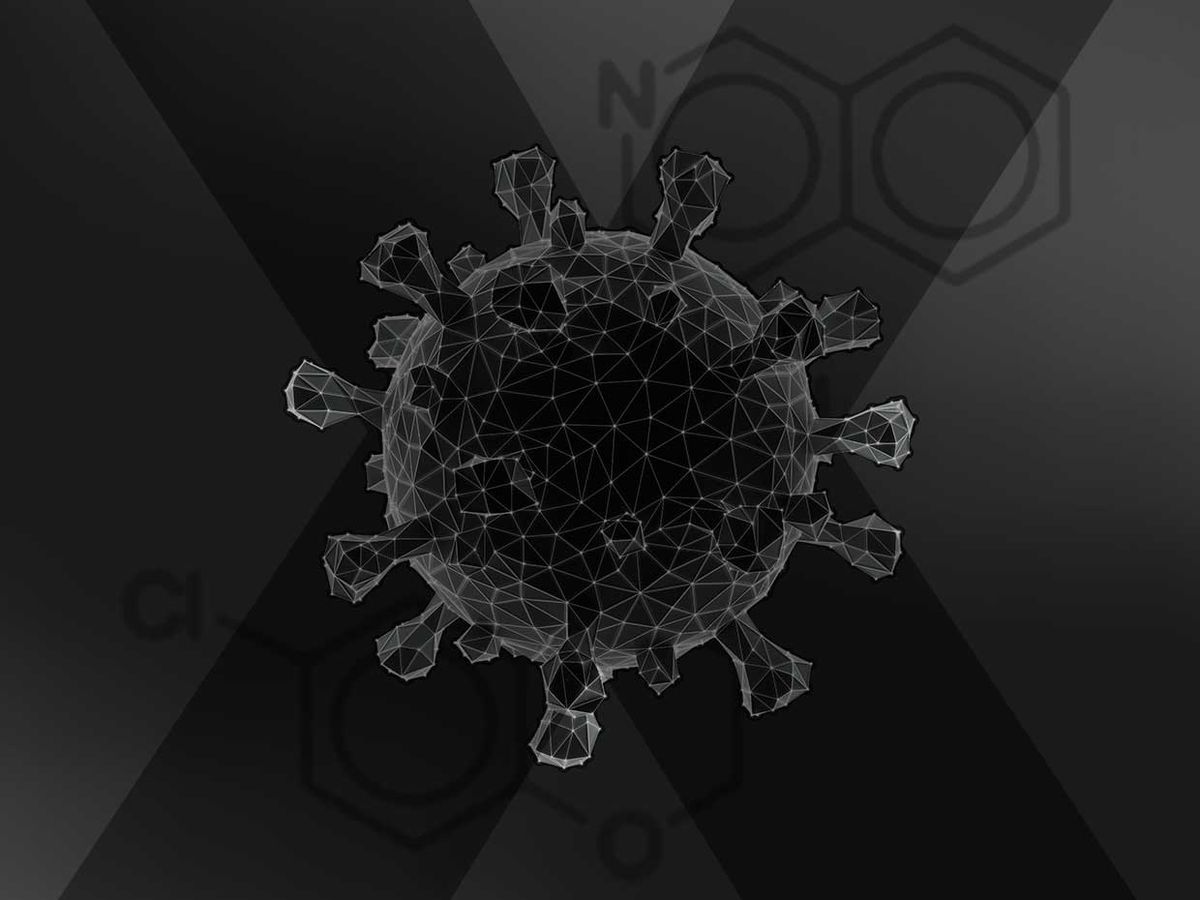In March, organizers of the COVID Moonshot initative crowdsourced chemical designs for COVID-19 antivirals. They received over 14,000 submissions from chemists around the world.
PostEra, a machine-learning company leading the Moonshot initiative, triaged those submissions for how quickly and easily each chemical compound could be synthesized. One looked particularly promising, and PostEra sent data about the compound back to an online volunteer crowd of medicinal chemists.
The crowd and PostEra’s machine-learning algorithms iterated back and forth, designing and testing tweaks on the chemical structure. Soon, the compound’s potency had increased by two orders of magnitude. Then, the chemical compound successfully killed live coronavirus in human cells without harming the cells. Now, that drug candidate and three more promising compounds are headed to animal testing in preparation for human clinical trials.
“All four are progressing really rapidly,” says Alpha Lee, cofounder and chief scientific officer of PostEra. “Now we are moving to the next phase: We are launching the drugs in animals and paving a path to the clinic.”
The COVID Moonshot, an open-science initiative that combines crowdsourcing with high throughput crystallography and machine learning, has synthesized and tested 1,000 compounds in less than 6 months, including generating crystal structures for over 200 of the compounds. Over 30 teams and organizations, including large university labs, chemical synthesis companies, and pharmaceutical companies, have provided time, expertise, and materials pro-bono or at cost.

Currently, the group has narrowed in on four chemical series—families of structurally-related compounds—that each show antiviral activity and drug-like qualities such as being stable in the body and potent in small amounts. “Four starting points evolved and matured into four elites,” says Lee. Having four chemically-diverse options means that if one turns out to be lacking, the group can quickly switch to another, he adds.
The compounds target a protein that is the Achilles heel for coronaviruses, the coronavirus main protease, Mpro. Which means the drugs could be effective against all coronaviruses, not just SARS-CoV-2. Additionally, small molecule drugs are often easier to make and distribute than vaccines, so Lee hopes new antivirals could help combat the current pandemic in places where vaccines may be hard to access.
The Moonshot team maintains a living summary of their data and results on bioRxiv, and everything produced by the group—including all data and final drug designs—is being made openly available with no intellectual property restrictions. “You can think of this as a generic drug from day zero,” says Lee.

To fund animal studies—a series of preclinical tests that measure safety parameters and optimize drug-like properties of a compound—the non-profit initiative has begun a $1.5 million fundraising campaign. Once the animal studies are complete in mid-2021, Lee hopes pharmaceutical collaborators will be eager to put the antiviral into clinical development, even without intellectual property rights, because all the expensive drug discovery and preclinical tests are already complete.
In June, Lee and three other leaders of the Moonshot published an editorial on the benefits of crowdsourcing drug design. The COVID Moonshot wants to lead by example, proving that a crowdsourced drug discovery process can successfully lead to human clinical trials. “I think one of the lasting impacts of Moonshot is not only a pan-coronavirus drug to cure COVID and prevent future pandemics, but also to nucleate a new way of organizing drug discovery,” says Lee.
Megan is an award-winning freelance journalist based in Boston, Massachusetts, specializing in the life sciences and biotechnology. She was previously a health columnist for the Boston Globe and has contributed to Newsweek, Scientific American, and Nature, among others. She is the co-author of a college biology textbook, “Biology Now,” published by W.W. Norton. Megan received an M.S. from the Graduate Program in Science Writing at the Massachusetts Institute of Technology, a B.A. at Boston College, and worked as an educator at the Museum of Science, Boston.



